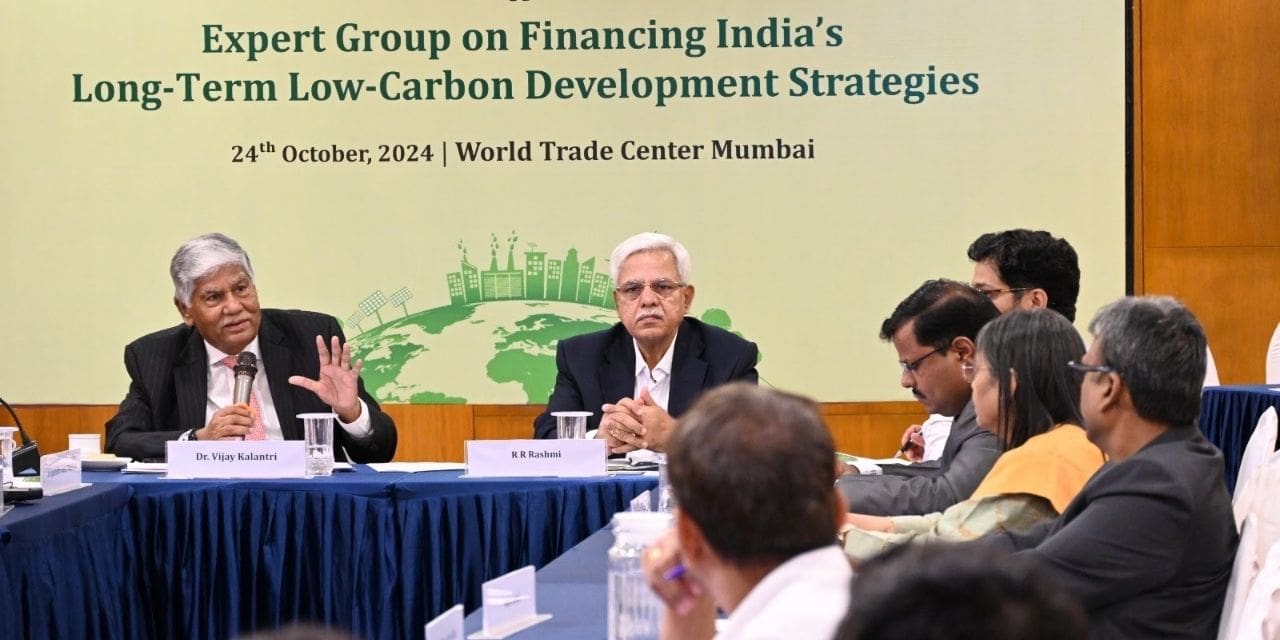MSMEs need support through credit guarantee for green bonds to adopt green technologies
The TERI Expert Group on Financing India’s Long-Term Low Carbon Development Strategies (LT-LCDS) convened a high-level roundtable, hosted in association with the All-India Association of Industries (AIAI) and the World Trade Center Mumbai.
The event brought together key stakeholders from financial and industrial landscape, including officials from the Reserve Bank of India, SEBI, Axis Bank, Tata Cleantech Capital Limited, Nippon Steel, and The World Bank. The dialogue highlighted the need for policy alignment and innovative financing mechanisms to address the financing challenges critical to enabling India’s transition to a low-carbon economy.
The event brought together key stakeholders from financial and industrial landscape, including officials from the Reserve Bank of India, SEBI, Axis Bank, Tata Cleantech Capital Limited, Nippon Steel, and The World Bank. The dialogue highlighted the need for policy alignment and innovative financing mechanisms to address the financing challenges critical to enabling India’s transition to a low-carbon economy.
In his remarks, Mr. Pramod Rao, Executive Director, SEBI informed about the measures taken by the market regulator to safeguard investors and promote investment in genuine de-carbonisation projects. He said, “SEBI has implemented the sustainability disclosure norm Business Responsibility and Sustainability Report (BRSR) Core on top 150 listed companies from September this year. Under BRSR Core, corporate disclosure is assessed by third parties as against BRSR where disclosure is based on self-declaration. We have mandated mutual funds to invest at least 65% of the capital raised under their ESG fund schemes on companies complying with BRSR Core. India is the first country to regulate ESG rating providers. There are 10-12 registered ESG rating providers in the country and they have to publish three reports based on BRSR Core.”
Mr. Rao pointed out that SEBI has been taking these investor assurance measures to promote investor confidence and to sustain flow of funds into genuine decarbonization projects. He said, “In recent years, we are seeing strong inflow of funds from retail investors as reflected in high monthly inflows into mutual fund SIP schemes, increase in F&O trading and bullish trend in SME IPO market. The monthly inflow from mutual fund SIP schemes has grown from Rs. 23,000 crore/ month 10 years to Rs. 65 lakh crore in recent months. We need to sustain this inflow by building investor confidence through the above investor assurance measures.”
Speaking about the modes of funding corporate sustainability projects, Mr. Rao informed, “The country has created a market for green bonds since 2017 and now we have expanded the eligible list of green projects covered under this bond to include renewable and sustainable energy, sustainable waste management, bio diversity conservation, pollution control and prevention, to name a few. We have also introduced other funding instruments such as blue bonds (water management projects), yellow bonds (solar power projects) and transition bonds.”
Mr. Rao highlighted three areas of concern in promoting investment in de-carbonisation projects and aligning the long term funding requirement to our Nationally Determined Commitments (NDC) targets.

